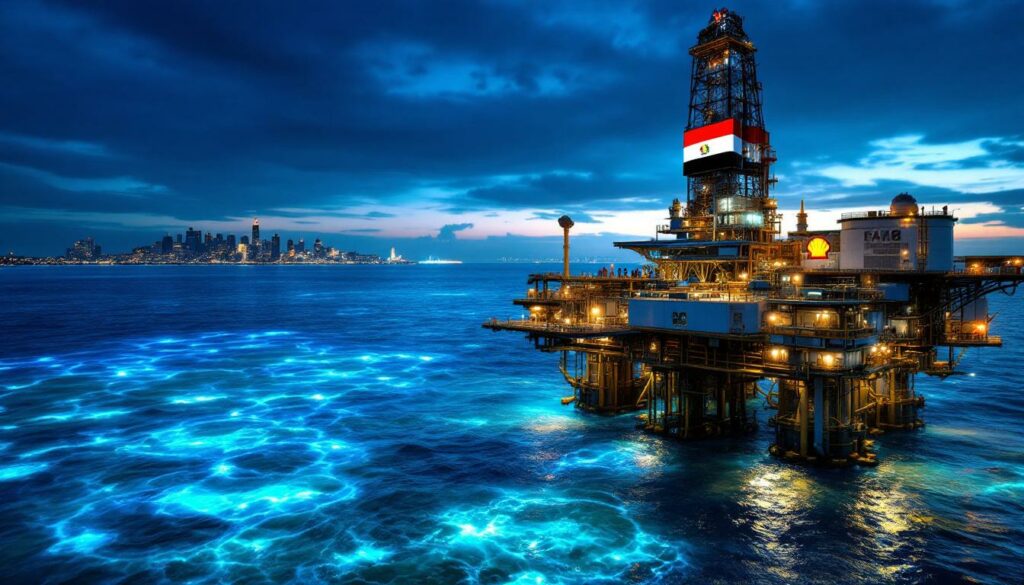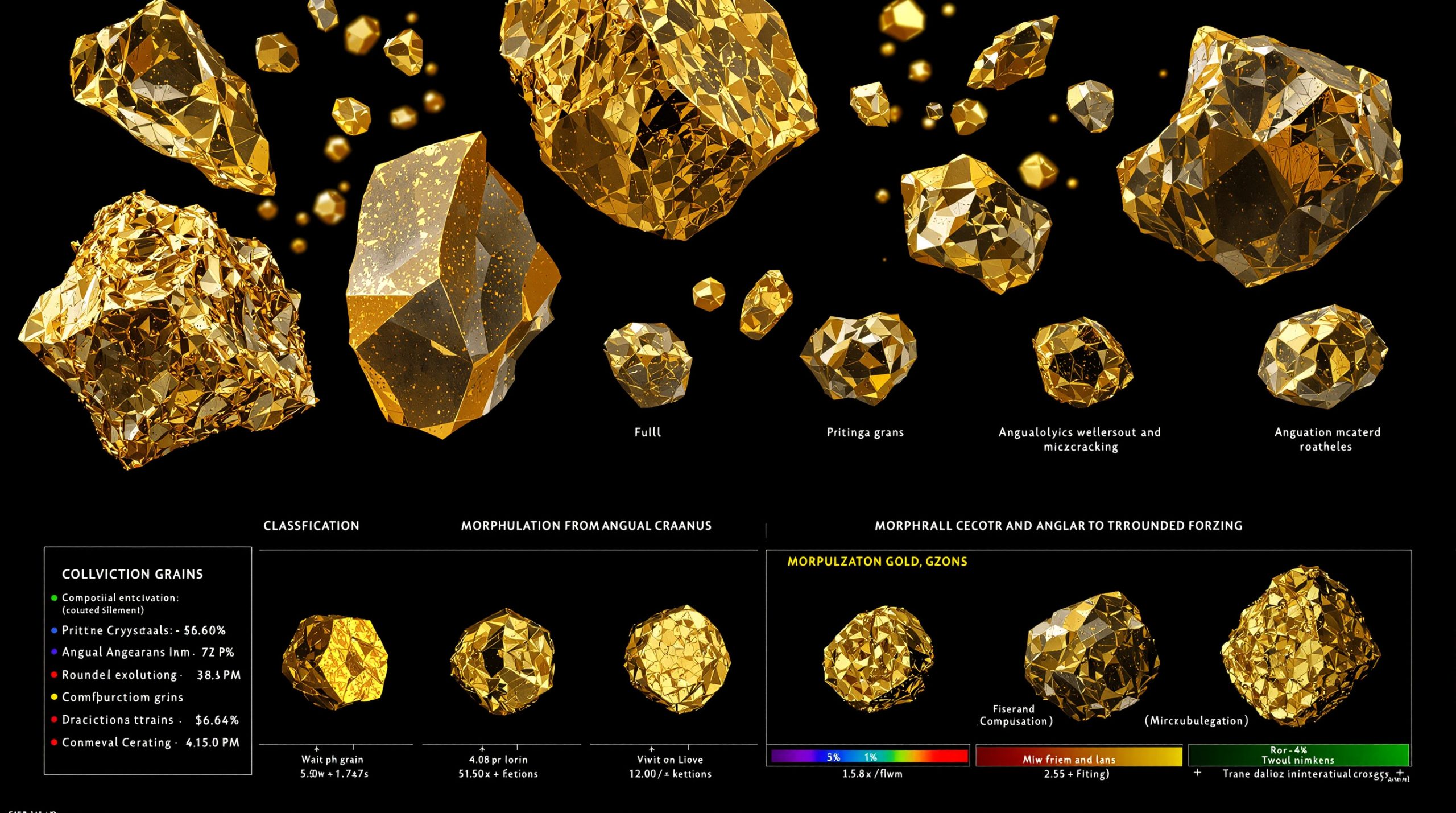Why is Shell Investing in Egyptian Natural Gas?
Shell's recent greenlight for a significant gas project in Egypt represents a strategic move to strengthen the country's domestic energy supply amid rapidly evolving market dynamics. This investment comes at a critical juncture when Egypt faces substantial energy demand growth and aims to secure its position as a regional gas hub.
The decision is backed by compelling market fundamentals. Egypt's domestic gas demand has grown at a remarkable 6.5% annually between 2019-2024, reaching 63.5 billion cubic meters in 2024 according to the Egyptian Ministry of Petroleum's 2025 Annual Report. This growth trajectory has created supply challenges, evidenced by a 28% decline in Egypt's LNG exports in 2024 due to domestic supply shortages.
Shell's investment in the North Marakia offshore block, where it holds a 100% stake with estimated reserves of 5.3 trillion cubic feet (Tcf), positions the company to address this market imbalance while securing long-term returns.
As Waleid Gamal Eldein, CEO of the Egyptian Natural Gas Holding Company, noted: "This project is critical for closing Egypt's supply-demand gap while maintaining export commitments. It represents a strategic alignment of international investment and national energy security."
The development aligns perfectly with Egypt's broader energy strategy to enhance self-sufficiency while maintaining export capabilities. With domestic consumption rising steadily and a projected energy deficit of 300 million cubic feet per day (MMcf/d) by 2026, this project addresses both immediate shortfalls and long-term energy security concerns.
What Does the New Gas Project Entail?
Project Scope and Development Timeline
The newly approved North Marakia gas project involves a comprehensive $1.2 billion investment structured with a phased commissioning approach:
- Phase 1 (Q4 2026): Initial capacity of 150 MMcf/d
- Phase 2 (Q3 2027): Expanded peak capacity of 400 MMcf/d
This phased development approach allows for initial production to come online relatively quickly—within a 22-month construction timeline—while full capacity development continues. Shell is leveraging ENI's existing Idku LNG infrastructure for cost efficiency, significantly reducing capital expenditure compared to a standalone development.
The technical design incorporates a state-of-the-art subsea production system operating at 700 meters depth with 8 horizontal wells. Shell is implementing digital twin technology for real-time reservoir monitoring, enabling proactive production optimization and reducing operational risks.
This approach mirrors the successful strategy employed in Shell's Perdido Project in the Gulf of Mexico, which reduced startup time by 18 months through phased commissioning.
Production Capacity and Resource Estimates
The project is expected to add significant production capacity to Egypt's natural gas output, with peak production equivalent to approximately 12% of Egypt's current domestic supply. Technical assessments have confirmed proven reserves of 2.1 Tcf with an impressive 84% methane concentration, according to Shell's December 2024 Reserve Audit Report.
Dr. Sara El-Baz, Petroleum Engineering professor at Cairo University, highlights another advantage: "The high-quality reservoir characteristics (37°API gravity, low sulfur) make this gas ideal for power generation without extensive processing."
This quality profile enhances the project's economics by reducing processing costs and increasing versatility for both power generation and industrial applications. The development's design incorporates flexibility to adjust production rates based on seasonal demand fluctuations, with capacity to increase output by up to 15% during summer peak demand periods.
How Will This Project Impact Egypt's Energy Security?
Addressing Domestic Demand Challenges
Egypt has experienced rapid growth in natural gas consumption over the past decade, with the power sector's gas consumption increasing from 45% to 63% of the total energy mix between 2020-2025, according to the IEA Egypt Country Report. This rising demand has occasionally outpaced supply capabilities, creating periodic shortages that threaten economic stability.
The North Marakia project directly addresses this challenge by providing a dedicated supply source capable of offsetting 85% of the projected 2027 supply deficit, according to the Egyptian Cabinet Energy Committee White Paper. By prioritizing the local market, the development helps insulate Egypt from potential supply disruptions and reduces dependency on expensive spot LNG imports during peak demand periods.
Key benefit: The project creates a buffer against seasonal demand spikes, particularly during summer months when electricity demand for cooling can increase gas requirements by up to 22%.
Balancing Export Commitments and Local Needs
Egypt has emerged as an important regional gas exporter, with contractual obligations requiring minimum deliveries of 650 MMcf/d through 2030 according to EGAS Contract Disclosures. However, balancing these export commitments with domestic requirements proved challenging in 2024 when exports were curtailed by 30% to meet local demand.
This new development creates additional flexibility in Egypt's gas portfolio, enabling the diversion of up to 340 MMcf/d to the domestic market during summer demand peaks while maintaining export obligations during shoulder months. This flexibility enhances overall system reliability and protects Egypt's reputation as a reliable supplier to international markets.
The project's strategic importance extends beyond immediate supply concerns, supporting Egypt's ambition to become a regional energy hub by ensuring domestic stability that underpins broader export infrastructure investments.
What Economic Benefits Will the Project Bring?
Investment and Job Creation
The Shell North Marakia project represents a substantial capital investment in Egypt's energy infrastructure, with $840 million in local contracts already awarded to Egyptian companies Petrojet and Enppi according to the Egyptian Ministry of Investment. This localization of the supply chain maximizes economic multiplier effects within the Egyptian economy.
Job creation extends well beyond the construction phase:
- Construction phase: 2,300 jobs (40% local hires)
- Operational phase: 120 permanent roles
- Supply chain impact: Estimated 1,800 indirect jobs
These employment benefits include significant skills transfer opportunities, with Shell's commitment to training programs that enhance the technical capabilities of the Egyptian workforce. The project will require skilled technical personnel in advanced drilling operations, subsea engineering, and digital systems management—creating pathways for Egyptian workers to develop specialized expertise.
Government Revenue and Foreign Exchange Impact
Natural gas production generates significant government revenue through Egypt's production sharing agreement (PSA) framework. The North Marakia project is projected to deliver approximately $220 million annually to state coffers through its PSA structure, which provides a 62.5% state take according to Egyptian Parliament Budget Analysis documents.
By reducing potential import requirements, the project also helps preserve foreign exchange reserves that would otherwise be spent on energy imports. The Central Bank of Egypt estimates savings of approximately $180 million annually in potential LNG import costs at current market prices.
This positive balance of payments impact is particularly valuable given Egypt's ongoing economic challenges and foreign currency constraints. The additional gas supply also supports industrial expansion in sectors ranging from petrochemicals to fertilizers, creating downstream economic benefits and potential export opportunities.
How Does This Fit Into Shell's Global Strategy?
Portfolio Optimization and Regional Focus
Shell's decision to advance this Egyptian project reflects its strategic approach to portfolio management as the company navigates the complex dynamics of energy transition. Egypt represents approximately 9% of Shell's Mediterranean production portfolio according to the company's 2024 Annual Report, making it a significant regional focus.
This investment decision follows Shell's $646 million divestment from Iraq's Majnoon field in 2024, demonstrating the company's disciplined capital allocation approach. While Shell has divested from certain assets globally, it continues to invest in core regions where it sees long-term value potential and competitive advantages.
The company's established relationships and infrastructure in Egypt provide significant advantages in terms of project execution and risk management. Shell's decades-long presence in the Egyptian gas sector allows it to leverage existing knowledge, partnerships, and infrastructure access that new entrants would struggle to replicate.
Energy Transition Considerations
Natural gas plays a significant role in Shell's energy transition strategy as a lower-carbon alternative to coal and oil. The North Marakia project aligns with this approach by targeting a methane intensity of less than 0.15% through Leak Detection and Repair (LDAR) technology implementation according to Shell Egypt's Emissions Charter.
The development incorporates carbon reduction technologies that will generate approximately 1.2 million tonnes of CO2 equivalent carbon credits annually through associated gas capture and utilization. These environmental credentials enhance the project's long-term viability in an increasingly carbon-conscious energy landscape.
Shell's approach in Egypt differs somewhat from its Carbon Neutral LNG framework used in Australia, reflecting the different market dynamics and infrastructure capabilities. However, the core principles of minimizing emissions intensity and maximizing resource efficiency remain consistent across its global portfolio.
What Challenges Must the Project Overcome?
Technical and Operational Complexities
Offshore gas development in the Mediterranean presents inherent technical challenges that Shell must navigate for project success. The North Marakia field contains zones with relatively high hydrogen sulfide (H2S) concentrations—up to 3% in certain sections—requiring specialized materials and safety protocols.
To address these challenges, Shell is deploying duplex stainless steel flowlines as reported in Offshore Engineer Magazine (April 2025). The company is also implementing advanced drilling techniques to navigate the complex carbonate reservoir structure that characterizes much of Egypt's offshore geology.
Integration with existing infrastructure requires careful coordination to avoid disruptions to current operations. Project execution must account for Mediterranean storm patterns that can impact offshore construction activities, with contingency planning for potential weather-related delays during critical installation phases.
Market and Pricing Considerations
Natural gas pricing in Egypt's regulated market creates a complex commercial environment. The current regulated price of $3.85/MMBtu stands in stark contrast to the $7.20/MMBtu spot LNG price according to the Argus Mediterranean Gas Report for Q1 2025. This pricing differential creates both challenges and opportunities for project economics.
Shell has negotiated a 15-year offtake agreement with EGAS featuring a hybrid pricing mechanism (70% regulated / 30% Brent-linked) that provides some insulation against oil price volatility while ensuring reasonable returns on investment. This arrangement balances the need for price stability for Egyptian consumers with the commercial requirements of the project investors.
The project's economics must account for these pricing realities while delivering acceptable returns on investment. Sensitivity analysis suggests the project maintains a positive internal rate of return (IRR) even under conservative pricing scenarios, though with varying payback periods depending on global energy market conditions.
What Environmental and Social Factors Are Being Addressed?
Environmental Impact Management
The North Marakia project will implement comprehensive environmental management systems aligned with both Egyptian regulations and Shell's global standards. This includes continuous monitoring of marine ecosystems, with particular attention to sensitive habitats near the project area.
Shell's emissions reduction strategy for the project focuses on three key areas:
- Methane leakage prevention: Advanced leak detection and immediate repair protocols
- Energy efficiency: High-efficiency turbines and heat recovery systems
- Flaring minimization: Zero routine flaring commitment with emergency systems only
Environmental monitoring programs will track the project's performance against established standards and regulatory requirements. Shell's global environmental practices provide a framework that often exceeds local regulatory minimums, particularly regarding marine protection measures during construction activities.
Community Engagement and Social Investment
Successful implementation requires effective engagement with local communities and stakeholders. The project includes structured community consultation processes in coastal areas potentially affected by onshore facilities and supply bases.
Social investment programs associated with the development will focus on three priority areas identified through community needs assessments:
- Educational initiatives: Technical training programs for energy sector employment
- Healthcare support: Upgrading medical facilities in coastal communities
- Economic diversification: Supporting fisheries and small business development
These initiatives aim to create lasting positive impacts beyond direct project employment, building long-term relationships with host communities and addressing development priorities identified through stakeholder dialogue.
How Does This Project Compare to Other Regional Gas Developments?
Competitive Position in the Mediterranean Gas Landscape
The Eastern Mediterranean has emerged as a significant gas province, with major discoveries in Egyptian, Israeli, and Cypriot waters creating a competitive landscape for investment. Shell's North Marakia project offers distinct advantages compared to other developments in the region:
| Project | Country | Reserves (Tcf) | Development Cost | Time to First Gas | Market Access |
|---|---|---|---|---|---|
| North Marakia | Egypt | 5.3 | $1.2 billion | 22 months | Existing pipeline |
| Leviathan | Israel | 22 | $3.75 billion | 38 months | New pipeline req. |
| Aphrodite | Cyprus | 4.5 | $2.5 billion | 48+ months | Export only |
Compared to greenfield developments in the region, Shell's project benefits from faster time-to-market and lower infrastructure requirements. The ability to leverage existing processing and transportation infrastructure significantly reduces capital intensity and accelerates the timeline to production.
Integration with Regional Gas Networks
Egypt's strategic position and existing LNG export facilities create opportunities for this project to potentially serve both domestic and international markets. The gas produced could support Egypt's role as a regional energy hub by enabling supply flexibility across the Eastern Mediterranean network.
The development complements other regional projects by enhancing overall supply security and creating potential for gas swaps or shared infrastructure arrangements with neighboring countries. Egypt's existing gas interconnections with Jordan, Israel, and potential future links to Cyprus position the country as a natural aggregation point for regional gas resources.
Shell's project enhances this hub potential by providing additional supply flexibility that supports various commercial arrangements, from direct domestic consumption to enabling equivalent export volumes from other fields.
What Does This Mean for Egypt's Energy Future?
Path Toward Energy Self-Sufficiency
Shell's investment supports Egypt's goal of achieving sustainable energy self-sufficiency in a market where demand growth has consistently outpaced supply expansion. By expanding domestic production capacity, the country reduces vulnerability to external supply disruptions and price volatility that characterized previous periods of supply shortage.
The project contributes to a more diverse and resilient energy system that can better accommodate growing demand across multiple sectors:
- Power generation: Supporting baseload and peaking needs alongside renewable expansion
- Industrial consumption: Providing reliable feedstock for petrochemical and fertilizer production
- Residential use: Meeting growing demand from population expansion and increased connection rates
This enhanced security provides a foundation for continued economic development by ensuring energy availability at predictable prices—a critical factor for industrial investment and economic planning.
Implications for Egypt's Energy Mix
Natural gas remains central to Egypt's energy strategy, serving as both a primary fuel for electricity generation and an industrial feedstock. This project reinforces gas's dominant position while potentially enabling greater integration of renewable energy sources through flexible generation capacity.
By ensuring reliable gas supply, the development provides the power sector with dispatchable generation that can balance variable renewable generation from Egypt's expanding solar and wind capacity. This complementary relationship supports Egypt's broader electrification & decarbonisation objectives while maintaining system stability.
The project's domestic focus aligns with Egypt's evolving policy framework that prioritizes self-sufficiency and value addition within the local economy over maximizing export revenues. This balanced approach supports both economic development and environmental goals through the efficient utilization of natural gas resources.
FAQ: Shell's Egyptian Gas Project
When will the project begin producing gas?
Initial production is expected to commence in Q4 2026 (Phase 1) according to Shell Egypt's official project timeline, with full capacity reached by Q3 2027 (Phase 2). This phased approach allows for earlier revenue generation while optimizing overall field development through lessons learned in initial operations.
How does this project affect Egypt's import requirements?
By boosting domestic supply by up to 400 MMcf/d at peak production, the project significantly reduces Egypt's potential need for gas imports during high-demand periods. This improved self-sufficiency enhances energy security and preserves approximately $180 million annually in foreign exchange that would otherwise be spent on imported energy at current market prices.
Will this gas be exported or used domestically?
The primary focus of the project is serving Egypt's domestic market, with gas contractually allocated 100% to the domestic market via the EGAS pipeline network according to Clause 4.2 of the Shell-EGAS Agreement. However, by increasing overall system capacity, it may indirectly support export capabilities by freeing up other supply sources during periods of lower domestic demand.
What technologies is Shell implementing in this project?
The development incorporates several advanced technologies that enhance performance and environmental protection:
- Digital twin technology: Real-time reservoir modeling for optimized production
- Horizontal drilling: Eight advanced horizontal wells to maximize reservoir contact
- Leak Detection and Repair (LDAR): Advanced methane monitoring systems
- Duplex stainless steel flowlines: Corrosion-resistant materials for high-H₂S zones
These innovations reflect Shell's global technical capabilities adapted to local conditions, with particular emphasis on technologies that reduce environmental impact while maximizing resource recovery.
Shell's Egyptian Gas Investment: Strategic Significance
The North Marakia project represents more than just another gas development—it signals confidence in Egypt's energy sector at a time of global transition and uncertainty. For Shell, it demonstrates continued commitment to natural gas as a transition fuel while leveraging existing strengths in a familiar market.
For Egypt, the project provides critical energy security during a period of rapid demand growth and economic transformation. The domestic focus of the development supports industrial expansion, stable electricity supply, and reduced import dependency—all key priorities for national economic planning.
Ready to Stay Ahead of Major ASX Mineral Discoveries?
Don't miss out on the next major discovery opportunity in the mining sector. Visit the Discovery Alert discoveries page to see how their proprietary Discovery IQ model delivers real-time alerts on significant ASX mineral announcements, empowering investors with actionable insights before the broader market reacts.




